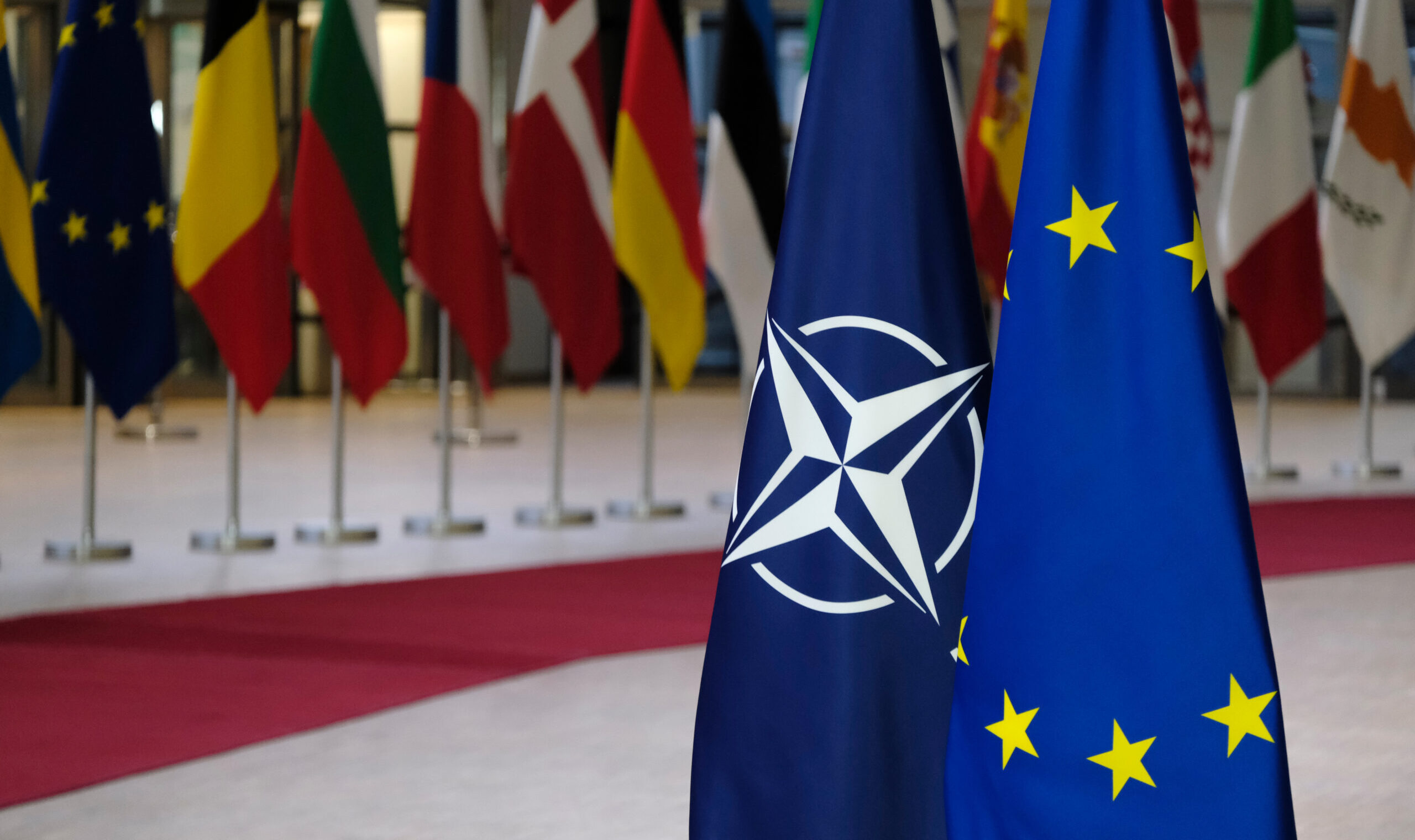
Kaja Kallas, who is what passes as the European Union’s foreign minister, has chutzpah. Unfortunately, her other qualities, such as hypocrisy, are less endearing.
Kallas has long criticized President Donald Trump’s direct approach to Russia’s President Vladimir Putin. After their phone conversation on Monday, days after direct Russia-Ukraine talks in Istanbul, she complained, “We really haven’t seen, you know, the pressure on Russia from these talks.” Back in February, she accused Trump of “appeasement” for calling Putin. She explained: “It is clear that any deal behind our backs will not work. You need the Europeans, you need the Ukrainians.”
That is rich coming from Kallas, who until last year was prime minister of Estonia. Stuck between Germany and Russia/Soviet Union, the Baltic state has suffered greatly throughout history. Unfortunately, as a member of NATO Tallinn offers liabilities rather than assets for America, which Kallas, and most of her countrymen, expect to defend their nation. After all, Estonia spent only $1.4 billion on the military last year, a rounding error for the Pentagon. That was 3.4 percent of GDP, impressive compared to other NATO members, but still shockingly low for a country that claims to fear a Russian invasion. Estonia’s army deploys 3,750 people. The government possesses ten ships, four airplanes, and three helicopters.
A country completely dependent on the largesse of others shouldn’t cast stones at those it expects to defend it from the nuclear-armed state next door. Especially since its immediate neighbors won’t save it if war comes. Nor will the wealthier, more distant European states. Tallinn would desperately await the American cavalry.
Kallas is not the only European personage who expects the U.S. to save his or her country. In March, Italian Prime Minister Georgia Meloni proposed handing out NATO security guarantees like some hotels distribute bedtime chocolates. When several European leaders discussed sending European troops to monitor a Ukrainian ceasefire, Meloni said no, arguing that “we need to think about more durable solutions,” meaning providing the alliance’s famed Article 5 guarantee to nonmembers: “Extending to Ukraine the same protection that NATO countries have would certainly be much more effective, although it would be something different from NATO membership.” She claimed that “this would be a stable, lasting, and effective security guarantee, much better than some of the proposals I have seen.”
It is a stupid, even dishonest idea. The alliance has a membership process because threatening war against a nuclear power is serious business and should be offered only to countries whose defense is vital, or at least incidental to protecting other member states. Ukraine fails both standards, which is why the U.S. and Europeans have spent the last 17 years evading their commitment to bring Kiev into NATO. If countries such as Ukraine don’t meet membership requirements, they shouldn’t be gifted the essential attributes of membership.
Proposing a security guarantee for non-members wasn’t the first attempt in March to make the U.S. foot the bill. A campaign to create a multi-national European peacekeeping force for Ukraine collapsed when Washington refused to provide Article 5 protection for the troops that Europeans proposed to deploy into danger. However, Meloni’s proposal isn’t just bad policy. Her suggested end run around the alliance’s membership standards is also a dishonest national copout. After rejecting the deployment of Italians to Ukraine, she hopes to appear tough without doing anything. Italy has one of the continent’s largest economies but competes with Spain as the worst major European laggard in military effort. With outlays at 1.49 percent of GDP, Italy is number 27 of 32 members. Among those doing better: Croatia, Albania, Montenegro, Portugal, Bulgaria, and Denmark.
In fairness, of course, even the best performers aren’t that impressive, at least if they really believe what they are saying about the likelihood of Putin launching a Blitzkrieg against them. Observed The Economist:
The realization is sinking in. Europe needs to become able to defend itself without America’s help. … The problem is that, so far, neither politician has offered much in the way of ideas on where the money for it is supposed to come from. Currently, the EU’s member states spend some €325bn ($340bn) a year on defense, which comes to about 1.8% of the bloc’s GDP. That is still, three years into war in Ukraine, less than the 2% target that NATO set its members in 2014 after Russia had illegally annexed Crimea and occupied the eastern Donbas region… Europe’s spending to support Ukraine is equally underwhelming. Since January 2022 the EU and its member states have spent €113bn in financial, military and humanitarian help, the equivalent of just above 0.2% of their GDP during each of those three years.
Some European officials have requested “a roadmap” to any American withdrawal to enable them to adjust their defense plans. However, most member governments evidence little urgency in building up their forces, while analysts warn that the allies will need years to prepare for Washington’s exit or even drawdown. Reported Politico Europe: “A report from Germany’s Economic Institute (IW Cologne) warned this week that it could take 10 to 12 years for Europe to replace key U.S. military capabilities.” This has become an argument against the Trump administration forcing Europe to grow up militarily. Even American military officers don’t want any reduction. And Europeans don’t hide their strategy. Politico Europe explained that some “European governments still hope that the U.S. midterm elections in two years, and the next U.S. presidential election in 2028, will hobble Trump’s power and restore the old alliance with the U.S. They also fear that starting to prepare for the worst could turn into a self-fulfilling prophecy and only accelerate a movement they’re still hoping to avoid, the three European officials said.”
This even though Russia, supposedly hobbled by sanctions, has been outspending the Western bloc since it invaded Ukraine. According to the International Institute for Strategic Studies: “Over the last year, European defense spending jumped by 11.7% in real terms to reach USD 457 billion, with 2024 marking the tenth consecutive year of growth … Nonetheless, European growth remained outpaced by uplifts in Russia’s total military expenditure, which grew by 41.9% in real terms to reach an estimated RUB 13.1trn (USD 145.9 bn). In light of lower domestic input costs and the dominance of domestic production in Russia, it is useful to examine military spending in purchasing power parity (PPP) terms. In purchasing power parity (PPP), Russian total military expenditure reached $462 bn in 2024, exceeding the total for Europe in USD at market exchange rates (MER).”
Of course, Moscow is using up much of its manpower and materiel to fight a brutal war against Ukraine. However, the Putin government has demonstrated that even a weaker economy under sanction can act quickly to produce significant quantities of weapons. Surely the Europeans could do more—if they believed that doing so was important. Instead, they continue to go easy both on aid to Ukraine and their own defense. While expecting the U.S. to continue to protect them during what promises to be, if they have their way, a very, very long transition to a truly European defense of Europe.
Although it is difficult to imagine an American case against a European defense of Europe, U.S. policymakers, in contrast to Americans more generally, have long benefited from a helplessly dependent Europe that typically lined up behind American initiatives while wielding American-made weapons. Edward Lucas of the Center for European Policy Analysis warned that, in the future, on issues of mutual interest there “will be far more a partnership of equals. On other issues—such as global financial management, conflict in the Middle East, and international law—Europeans will have their own ideas and their own priorities.” Indeed, Kishore Mahbubani, celebrated author with Singapore’s Asia Research Institute, has called on Europe to formally set a new course, indicating its willingness “to quit NATO,” reach a deal with Russia, “with each side accommodating the other’s core interests,” and “work out a new strategic compact with China.”
Subscribe Today
Get daily emails in your inbox
No doubt, such an approach would horrify Washington policymakers, including many around Trump. For instance, Secretary of State Marco Rubio rejected suggestions that the U.S. might leave the transatlantic alliance: “The United States is as active in NATO as it has ever been.” However, Americans should imagine a better future, one in which Europe, with more than ten times Russia’s GDP and three times Russia’s population, not the U.S., stood up to Moscow while trying to engineer better relations with it. And in which Europe deployed its own forces to protect more distant interests, such as European commerce targeted by Yemen’s Houthis. Most Americans would applaud such a result. Burden shedding, not sharing, should be Washington’s strategy for the future.
This is especially the case since its traditional determination to dominate allies and adversaries alike is bankrupt. The U.S. is running unsustainable deficits, more than $2 trillion annually, nearing the post-World War II record of 106 percent debt to GDP, and drowning in rising interest payments, more than $1 trillion a year. All these at a time without a hot war, pandemic, or financial crisis. Passage of the GOP tax bill will fuel the debt rise, which could become a tsunami if the economy falls into a recession. Over the long term, spending, deficits, interest payments, and debt are headed ever upward, with no limit in sight. With draconian cuts in Social Security, Medicare, and Medicaid unlikely, the Pentagon will eventually become the prime budget target. Taxes will almost certainly be raised along the way, but which U.S. politician will propose making Americans pay even more so Europeans can pay even less?
Kallas, Meloni, and many other Europeans still hope to play Uncle Sam for Uncle Sucker. However, the American people elected Donald Trump to say no more. It is time for Washington to treat Europeans as friends, adults, and allies, rather than suffer them as clients, dependents, and deadbeats.


